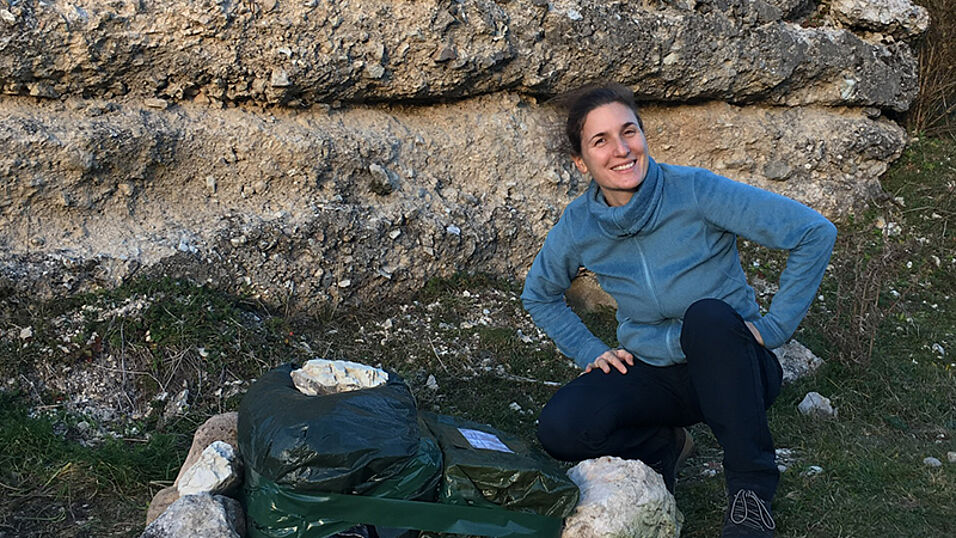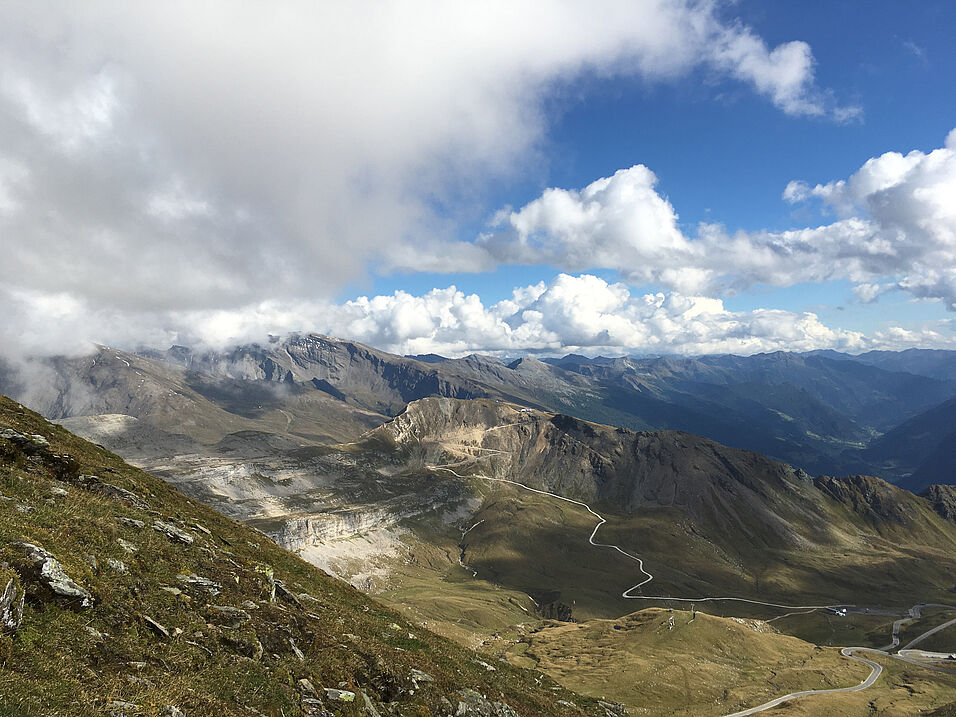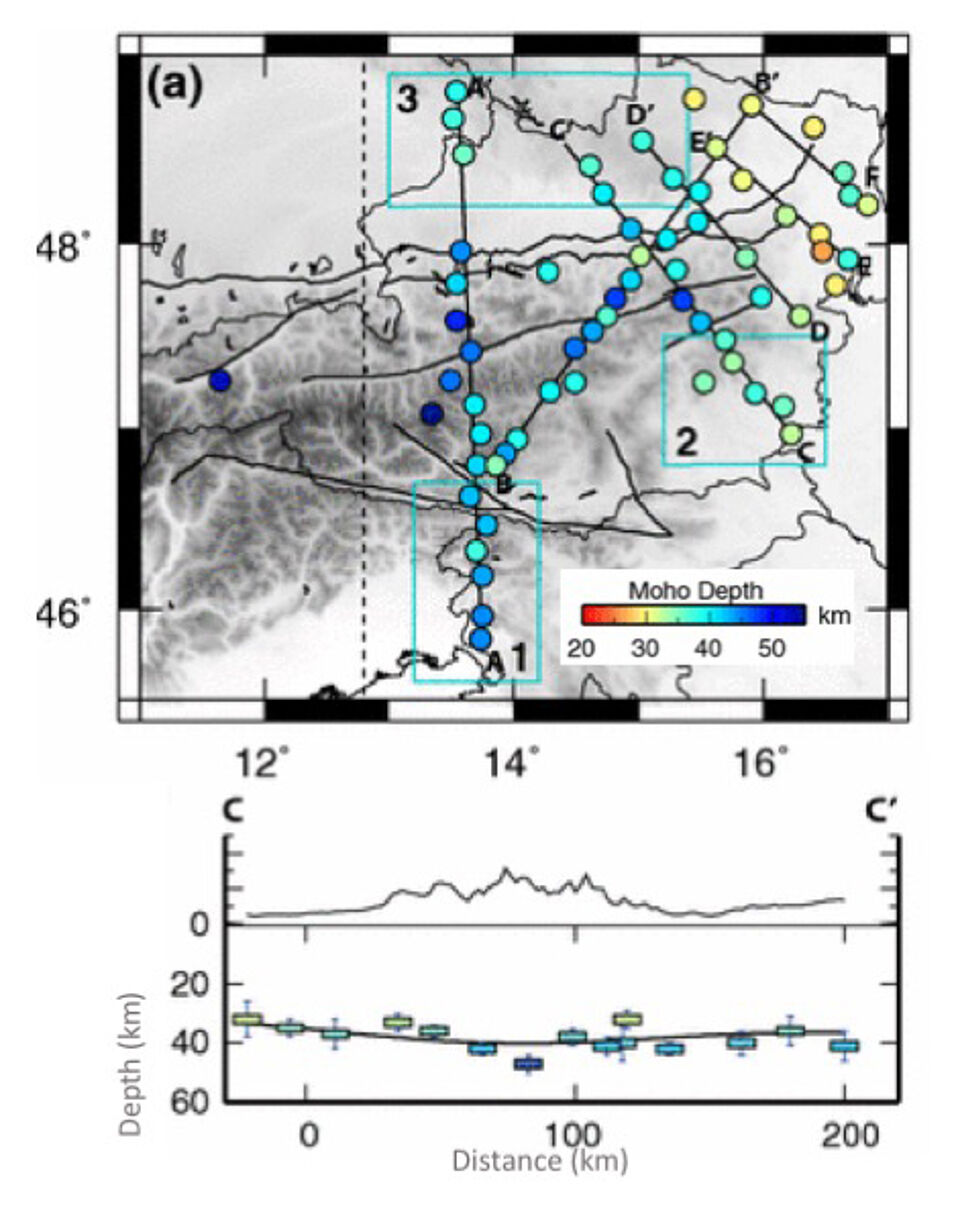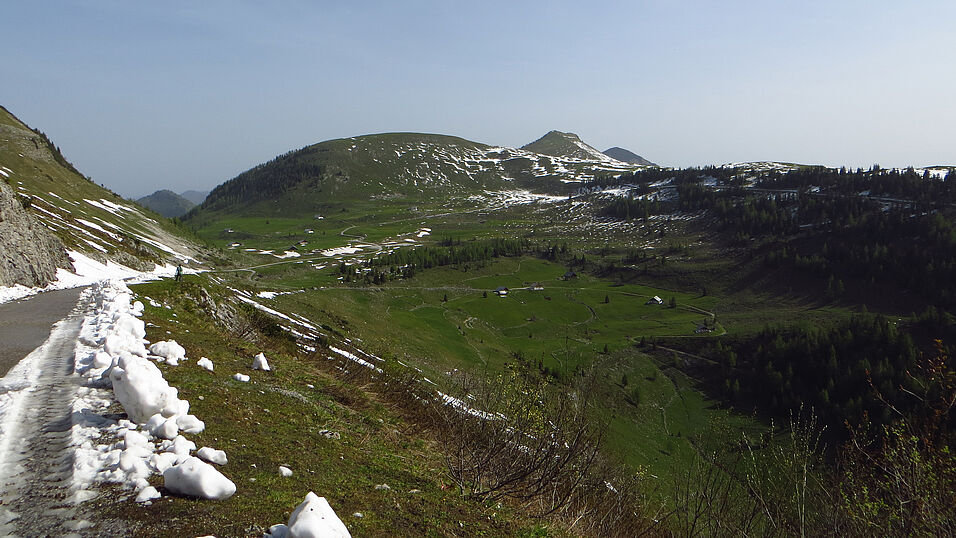"I always wanted to do science", geophysicist Irene Bianchi says. "Geophysics came up, I guess, because we have so many earthquakes in Italy. So it was kind of natural to move from geology to geophysics." After finishing her PhD at the University of Bologna, she crossed the Alps and started working as a postdoc researcher at the Department of Meteorology and Geophysics of the University of Vienna. "Here I found a favourable environment to establish my research in Earth Sciences, coming in contact with national research and setting up several international collaborations", she explains.
Dynamics of the shallowest layers of the Earth
In the following years Irene Bianchi discovered her interest in the deep Earth and, in particular, widened her knowledge on the deep structures of the Eastern Alps. Her research interests are focused on the understanding of the dynamics of the shallowest layers of the Earth, 50 to 100 km below the surface. "In particular I use the Receiver Function methodology to give constraints on the anisotropic features of the crust and of the upper mantle, together with a fine detail on the depth and thickness of the layers", describes the geophysicist, who spent six months at Yale University during her PhD.
In 2015 and 2017 Irene Bianchi gave birth to her two children. With the Back-to-Research Grant, she now wants to summarize her research work: "I will use the grant to finalize some publications that are still pending and kind of key projects for my field of studies", she says.
Using seismological methods
On the one hand, Bianchi is working on a research proposal on the sedimentary thickness of the Molasse Basin in Austria via passive seismological methods and comparison with data from boreholes. This research started in 2014 when a long profile of seismic stations was installed together with other institutes from Switzerland, the Czech Republic and Italy. Now these data are used for testing the resolution of passive seismological tools to determine sedimentary basin structure and their elastic properties, "a hot topic for many societal challenges, like seismic hazard or geothermal exploitation", she explains. With this work finished, she could think about bigger projects regarding this topic.
Finding links between data and reality
The second project Irene Bianchi wants to publish now, focuses on the comparison of the anisotropic signal detected in the seismic records of natural events and the observed deformation in the crustal metamorphic rocks. She conducted an experiment at the KTB (Kontinentales Tiefbohrprogramm) deep drilling site in the Southeastern Germany to try to find the links between data and reality.
"At KTB we found anisotropy with seismic waves and recognized the same pattern in rock foliation; then we can give some hints on the causes of seismic anisotropy and possibly on the structures in other unaccessible places, for example deeper in the Earth's crust", she says. "We wanted to find proof that what we have in the seismic wave is really due to the structure of the rocks, which can also be important in active areas, where we have the possibility of earthquakes."
Hunderds of kilometers beneath
The results of her studies and the field data will also be used by other researchers - a fact, that for Irene Bianchi is really satisfying. "I have always loved to do basic research in really large depth, because it gives you the possibility to be on the surface and to use the records of the earthquakes to understand what's below your feet, even if it's hundreds of kilometres beneath." What else does she like about working as a scientist? “Reading papers, putting things together and finding new theories and explanations for observations“, she says. "And I really do like writing. Scientific writing is not like writing a novel, but you still put plenty of yourself into it.”
Besides finishing her papers, Irene Bianchi will continue teaching part of the "Tectonophysics" course and "Structures of the Eastern Alps" for master students. After the Back-to-Research Grant she aims at continuing her research with research projects.
Balancing maternity and scientific career
How does she balance maternity and her work as a scientist? "I feel a little torn between the two sides: If I could stay longer in the office every day, it would be better for my research, but I'm also happy being a mother", she says. "On one hand it's true that maternity slows down the scientific career. But I also acquire new skills, which I can use well in the working environment: like not wasting time anymore and getting my results quicker”, she smiles. “I'm more focused now and I try not to dissipate my energy." (isa)
- The Back-to-Research Grant has initially been developed by the Faculty of Earth Sciences, Geography and Astronomy at the University of Vienna in 2010 and has since then been provided successfully. In 2013 a university-wide pilot run began. The target group of this programme are female postdocs from the faculties who, during the last five years, have reduced or interrupted their research because of care obligations in their families. The Back-to-Research Grant is designed to provide women researchers with the possibility to draw up or complete research applications and/or publications in order to ensure that they can re-enter or continue their academic careers.




